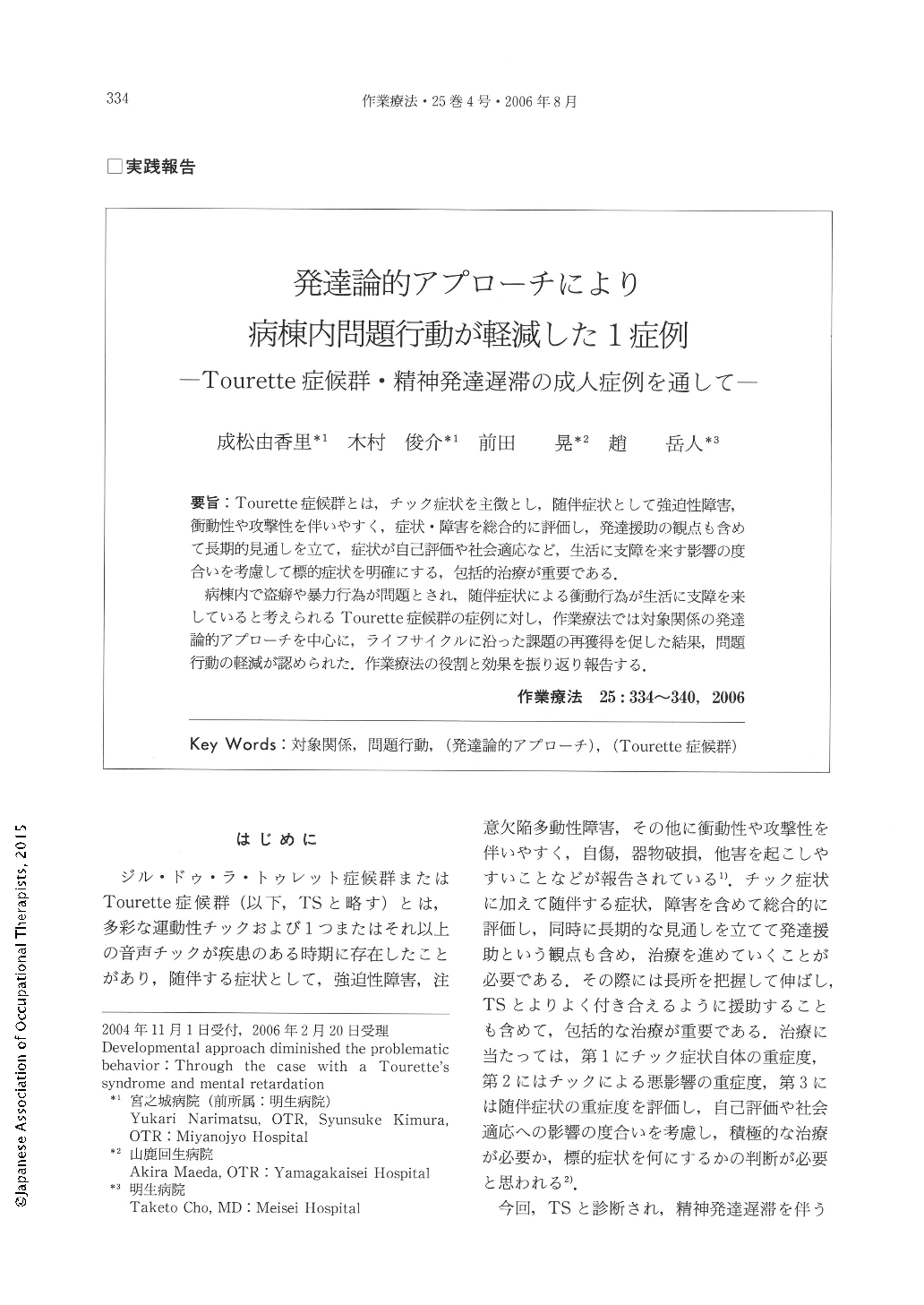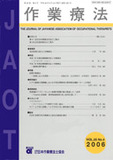Japanese
English
- 販売していません
- Abstract 文献概要
- 1ページ目 Look Inside
- 参考文献 Reference
要旨:Tourette症候群とは,チック症状を主徴とし,随伴症状として強迫性障害,衝動性や攻撃性を伴いやすく,症状・障害を総合的に評価し,発達援助の観点も含めて長期的見通しを立て,症状が自己評価や社会適応など,生活に支障を来す影響の度合いを考慮して標的症状を明確にする,包括的治療が重要である.
病棟内で盗癖や暴力行為が問題とされ,随伴症状による衝動行為が生活に支障を来していると考えられるTourette症候群の症例に対し,作業療法では対象関係の発達論的アプローチを中心に,ライフサイクルに沿った課題の再獲得を促した結果,問題行動の軽減が認められた.作業療法の役割と効果を振り返り報告する.
Tic is the primary symptom, and aggression and obsessive-compulsive disorder are the secondary symptoms of Tourette's syndrome. The therapist should not overlook the patient's ability, and should understand as much about him as possible. To establish the comprehensive treatment with identifying target symptoms, the following points of view are important : 1) multi-focal assessment of symptoms and disabilities, 2) making long term plans including supporting human development, 3) assessing the negative influence of symptoms on self esteem and social adaptation.
A male adult patient with Tourette's syndrome had problematic behavior involving theft and impulsive violence. It seemed that the secondary symptoms had much to do with the behavior. We guessed that the secondary symptoms are handicaps. The developmental approach of object relations made him have similar kinds of experiences, which he would have been expected in his childhood. Occupational therapy facilitated a re-construction of the healthy psychological developmental process, and as a result, this approach made him reduce the above-mentioned problematic behavior.

Copyright © 2006, Japanese Association of Occupational Therapists. All rights reserved.


